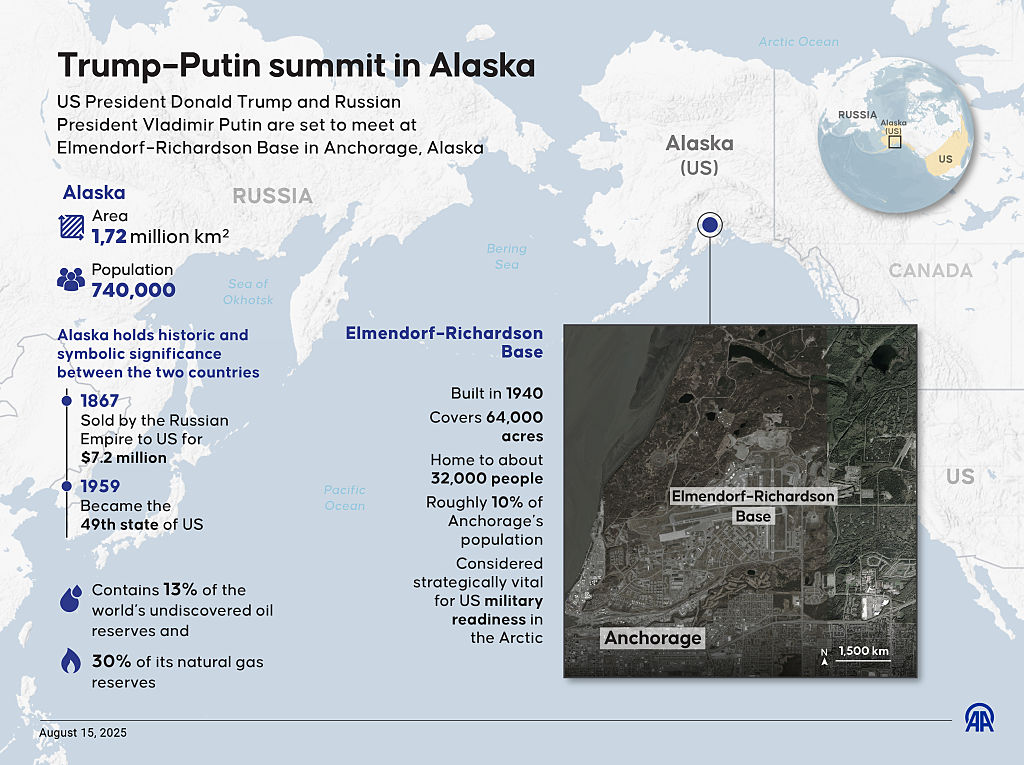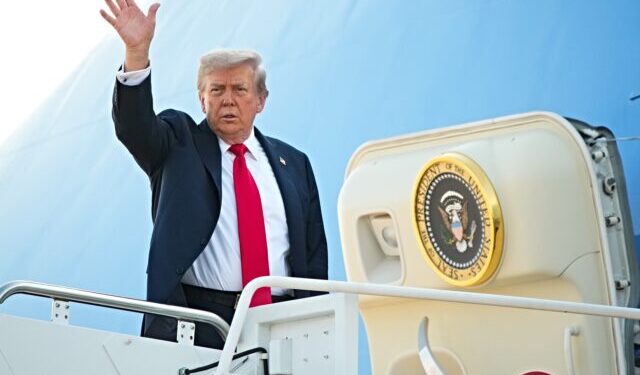President Donald Trump departed Washington, DC, on Friday morning, bound for Anchorage, Alaska, for what could be one of the most consequential diplomatic encounters of his presidency — a direct meeting with Russian President Vladimir Putin over the ongoing war in Ukraine.
Air Force One lifted off just after 8 a.m. ET, carrying the president toward the high-security Elmendorf-Richardson Base. The mission: push both Putin and Ukrainian President Volodymyr Zelensky toward a peace agreement, and do it without endless bureaucratic entanglements.
Speaking to reporters mid-flight, Trump made clear that he’s approaching the talks with a firm hand. Asked about earlier remarks that Putin would face “severe consequences” if he appeared unwilling to negotiate, Trump didn’t mince words.
“Economically severe. Yes, it will be very severe. I’m not doing this for my health, okay,” Trump said. “I don’t need it. I’d like to focus on our country, but I’m doing this to save a lot of lives. Yeah, very severe.”
The president also signaled that territorial concessions — an approach often avoided in Washington’s official playbook — could be discussed, though he emphasized that the choice belongs to Kyiv.
“[Territorial swaps will] be discussed, but I’ve got to let Ukraine make that decision, and I think they’ll make a proper decision,” he explained. “But I’m not here to negotiate for Ukraine. I’m here to get them at a table.”
Then, in a pointed reminder of his own foreign policy track record, Trump added, “Look, Vladimir Putin wanted to take all of Ukraine. If I wasn’t president, he would, right now, be taking all of Ukraine, but he’s not going to do it.”
The Anchorage meeting underscores a contrast in approach — one that prizes direct talks over drawn-out multilateral committees and costly, open-ended foreign entanglements. By choosing Alaska as the venue, Trump is bringing the discussion closer to home soil while still signaling resolve to America’s adversaries.

This is far from Trump’s first foray into high-stakes diplomacy. His administration has been averaging one ceasefire or peace deal per month — an unprecedented pace that has foreign policy veterans taking notice. In the past year, Trump has helped broker agreements or ceasefires between Israel and Iran, the United States and Ansarallah, India and Pakistan, the Democratic Republic of the Congo and the Republic of Rwanda, Thailand and Cambodia, Egypt and Ethiopia, and Armenia and Azerbaijan.
Now, with speculation building over whether such efforts might earn him a Nobel Prize, Trump is setting his sights on what could be his most politically charged challenge yet: bringing a grinding European war to the table for resolution.
This is the kind of diplomacy that skips the endless ribbon-cutting ceremonies and public relations fanfare — aiming instead for measurable results that spare lives, cut costs, and remind the world that American leadership can still mean decisive action.




















